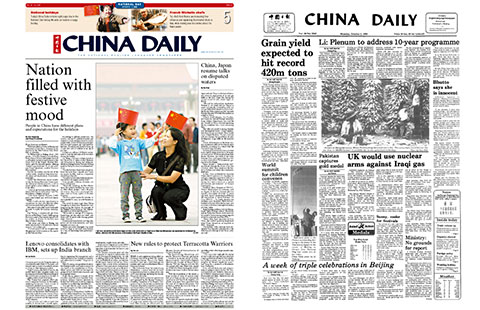Local governments attempt to cool overheated property market
(Xinhua) Updated: 2016-10-05 19:38BEIJING - China's local governments are introducing new policies to rein in soaring housing prices by preventing property speculation.
In the last week, a total of twelve cities including Beijing, Hangzhou, Shenzhen and Tianjin have restricted buyer qualifications, limited purchase amounts or raised down payments.
Beijing on Friday raised the down payment for first-time buyers from 30 percent to 35 percent. The deposit for second home purchases must now be at least 50 percent. Hefei, capital of east China's Anhui Province, on Saturday decreed that the price of any property must remain unchanged for six months after registration.
Rising property prices have been generating many headlines. Prices in megacities like Beijing and Tianjin have soared in the past two months, fuelling talk of a property bubble. The Ministry of Housing and Urban-Rural Development on Monday said that 45 property developers or agents were being investigated for stoking speculation through false advertisements, rumors and breaches of presale rules.
Prices in 100 major Chinese cities rose 14.9 percent in the first nine months of 2016, with August and September seeing record month-on-month growth of more than 2 percent, according to the China Index Academy (CIA), a private property research institute.
Shrinking profits in the real economy and expectations of yuan devaluation have led to capital flooding into the property market, the CIA pointed out.
Local government policy focuses on balancing supply and demand to stabilize prices and market expectations, said Liu Hongyu of Tsinghua University.
Liao Junping of Sun Yat-sen University suggested that the housing supply and related infrastructure should be increased in hot-spot cities, while Liu suggested that local governments disclose their land supply plans for the next few years and act accordingly.
Shenzhen saw the biggest price rises this year and on Tuesday announced that 137 hectares of building land would be made available as soon as possible. However, the national picture is uneven. Outside of big cities, prices are at best flat and inventories high.
Property market management should be specific to local market conditions, Liao said, with hot-spot cities focused on keeping prices stable and guarding against bubble risks while smaller cities and towns should reduce the number of unsold homes.
While mortgages have grown fast in 2016, overall household debt is still low, therefore local solutions are better than broad monetary tightening, according to HSBC.
- China's Sansha to build sea turtle refuge
- Beijing issues air pollution alert
- Leaders mark China's progress
- Telecom scammers will face harsher punitive measures
- Rescuers race against clock to search for the missing
- China, Belarus to enhance ties and mutual relations
- Beijing backs Philippines' war on drug crimes
- Washington, DC, boosting efforts to attract Chinese
- Xi calls for reforms on global governance
- 15 rescued, 26 still missing in East China landslide











